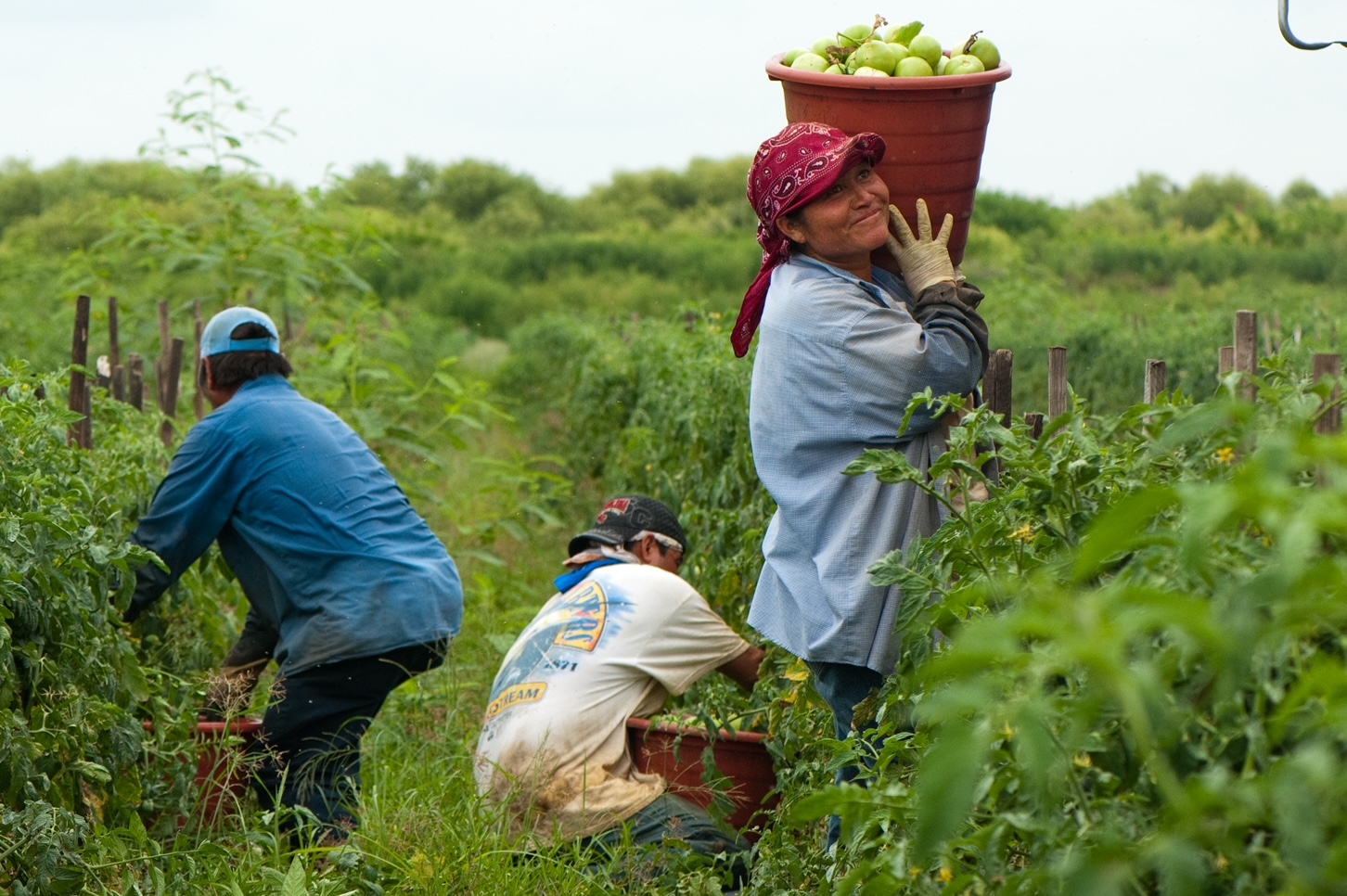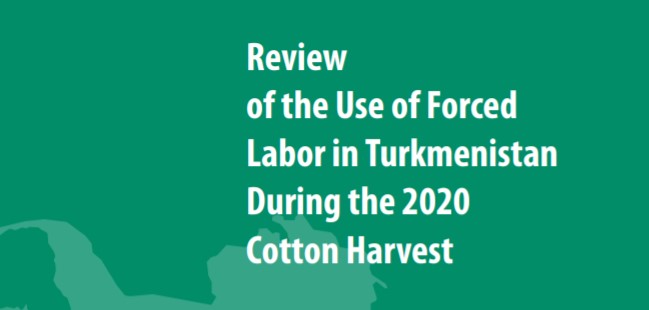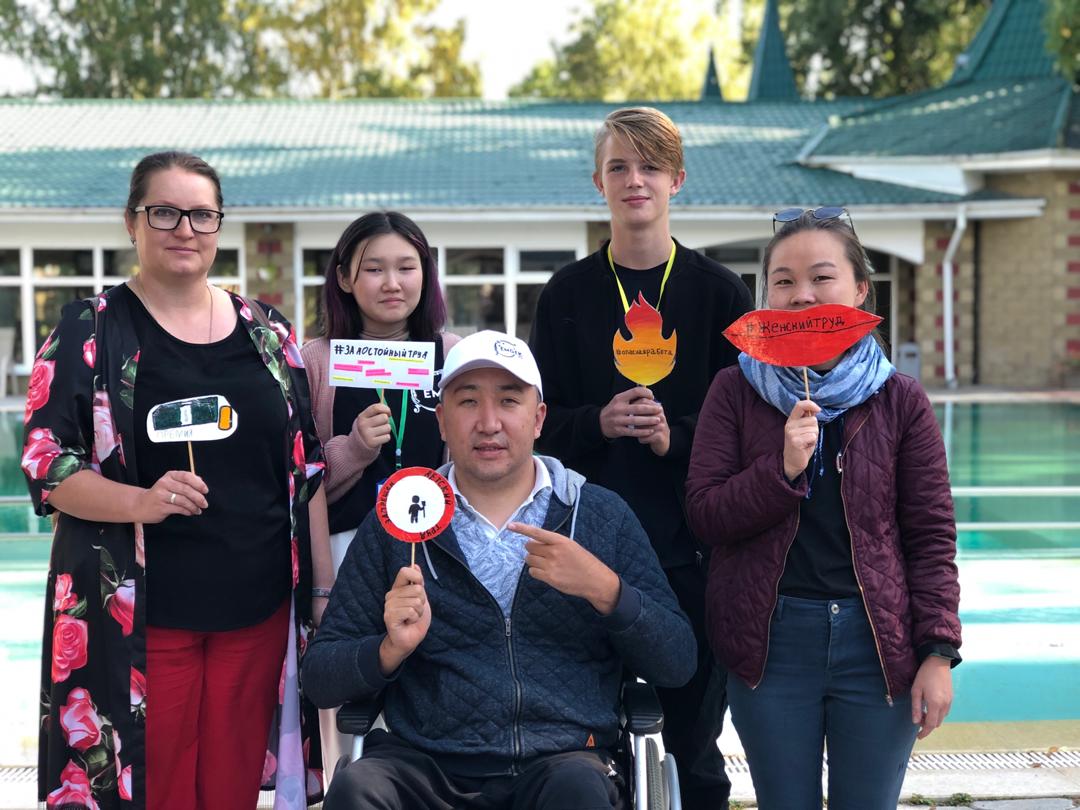Millions of workers around the world engage in paid labor—yet do not receive their wages. In addition, getting employers to pay workers what they are owed often is difficult—especially for those who have migrated for work, according to a new report from the Migrant...
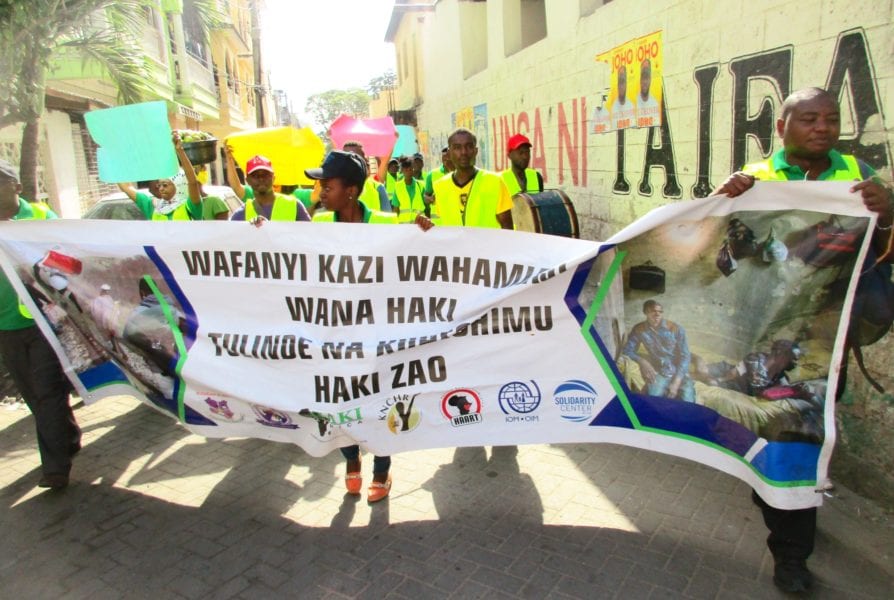
The Solidarity Center workers with partners like those in Kenya to end labor trafficking of migrant workers. Credit: Solidarity Center/Caroline Kasina
The Solidarity Center advocates an approach to combating human trafficking that puts worker rights at the forefront of solutions and calls for the labor movement to be involved.
Trafficking for forced labor results from the absence of human rights and effective governance. It often occurs in countries that restrict civic freedoms, have weak rule of law and prevent the exercise of the right to freedom of speech, assembly and association—including the right to form or join a trade union to represent their interests.
Trafficking for forced labor also thrives in un- or under-regulated supply chains and so combating trafficking must begin with empowered workers who can stand up to exploitation when it occurs.
Migrant workers are especially targets of human trafficking and forced labor. Corrupt labor brokers lie about the wages and working conditions workers should expect in a destination country and charge such huge fees for securing work that migrant workers cannot repay them even after years on the job, forcing them to remain in dangerous working conditions because their debt is too great. Employers use work visas and threats of deportation to exploit workers for forced labor.
With migrant workers, trade unions, human rights NGOs, governments and civil society coalitions around the globe, the Solidarity Center raises awareness about the causes and the extent of trafficking for forced labor and implements programs with our partners worldwide to combat this scourge. These programs address each of the four “Ps” that are part of the anti-trafficking toolkit: prevention, protection of victims, prosecution (access to justice) and partnerships. Solidarity Center programs recognize that we cannot eliminate forced labor without fundamentally changing how labor migration is managed around the world, how companies do business and how governments monitor and enforce human and labor rights.
Turkmenistan: Forced Labor Remains in Cotton Supply Chain
Cotton bound for global markets from Turkmenistan—the ninth largest producer and seventh largest exporter of the world’s cotton—was again harvested with forced labor last year, finds a new report by the Turkmen Initiative for Human Rights and turkmen.news. Students...
‘Information Is the Key’: Empowering Kyrgyzstan’s Young Workers
To promote youth civic engagement and the fair employment of women, workers with disabilities and those migrating outside the country to earn a living, the Solidarity Center’s second annual School of Young Leaders in Bishkek educated dozens of young people in...
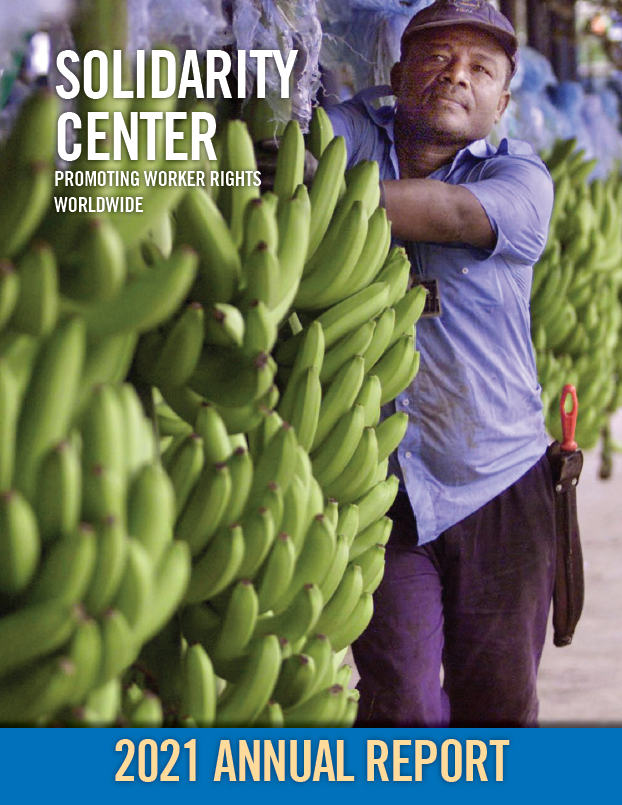
2021 Annual Report
Download here.
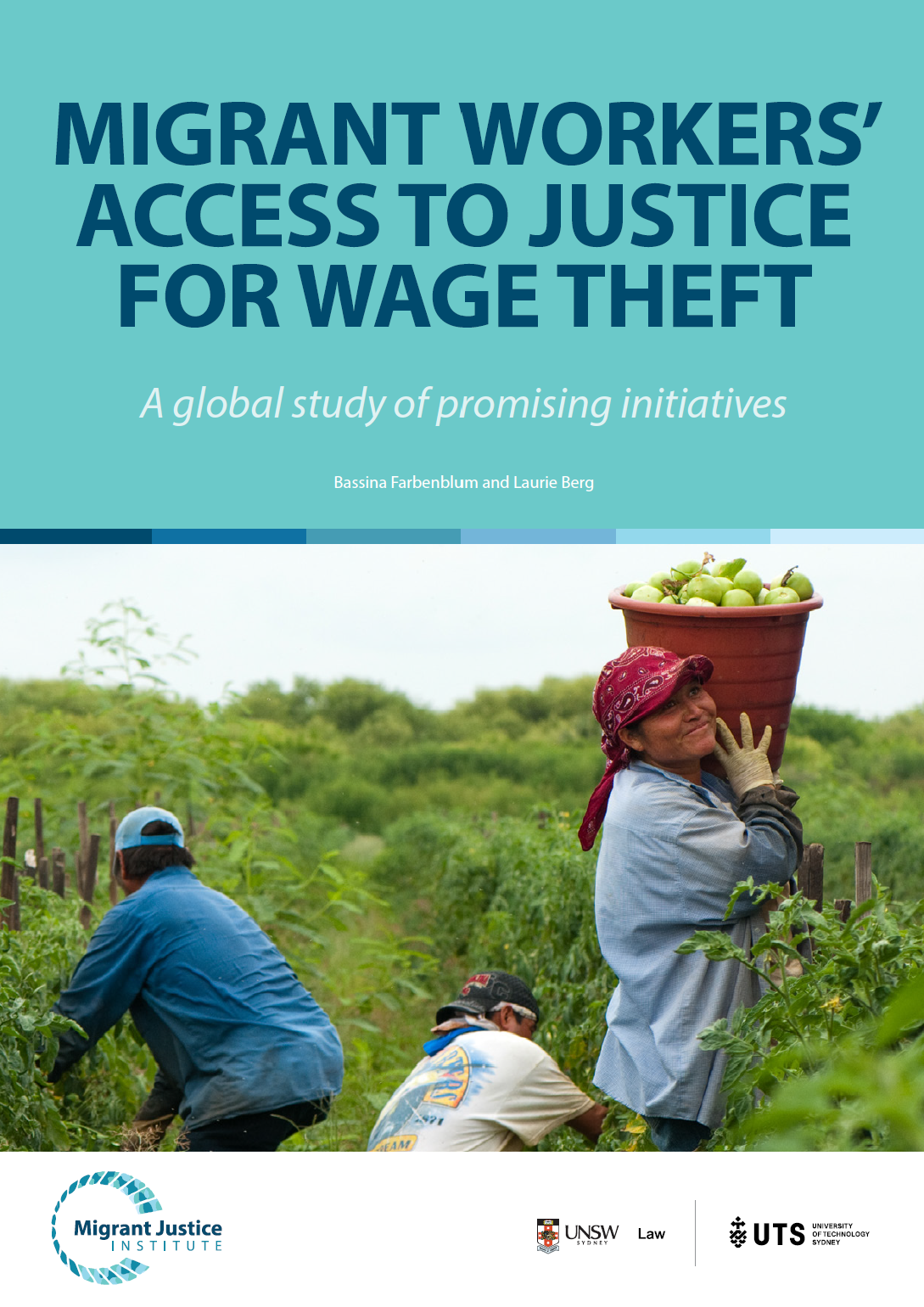
Migrant Workers’ Access to Justice for Wage Theft: A Global Study of Promising Initiatives
The report identifies initiatives from around the world that enable migrant workers to obtain redress for wage theft through administrative and judicial mechanisms. These initiatives shift risks and burdens of wage recovery away from workers and onto government and...
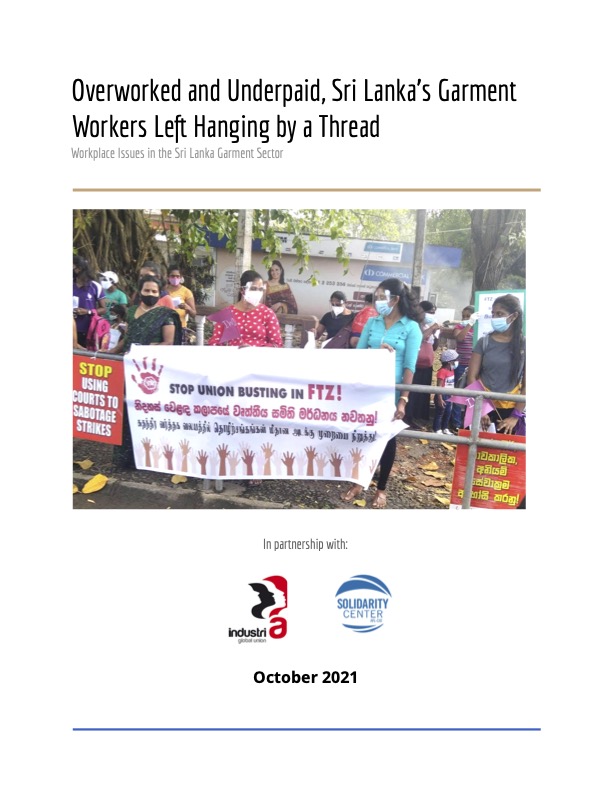
Overworked and Underpaid, Sri Lanka’s Garment Workers Left Hanging by a Thread
A survey of garment workers in Sri Lanka, conducted in partnership with Solidarity Center and IndustriALL, found employer opposition and harassment has limited their ability to form unions and address workplace rights violations such as increased workloads and work...
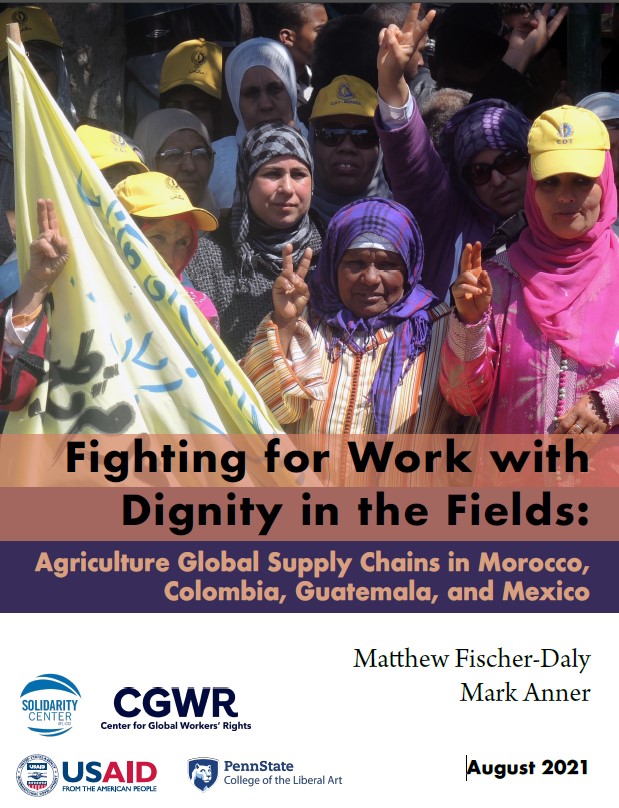
Fighting for Work with Dignity in the Fields: Agriculture Global Supply Chains in Morocco, Colombia, Guatemala and Mexico
Where unions establish collective bargaining, they initiate the strongest mechanism for protecting agricultural workers’ rights, health and dignity. Through analysis of five agribusiness sectors—including palm oil in Colombia, bananas in Guatemala, strawberries in...
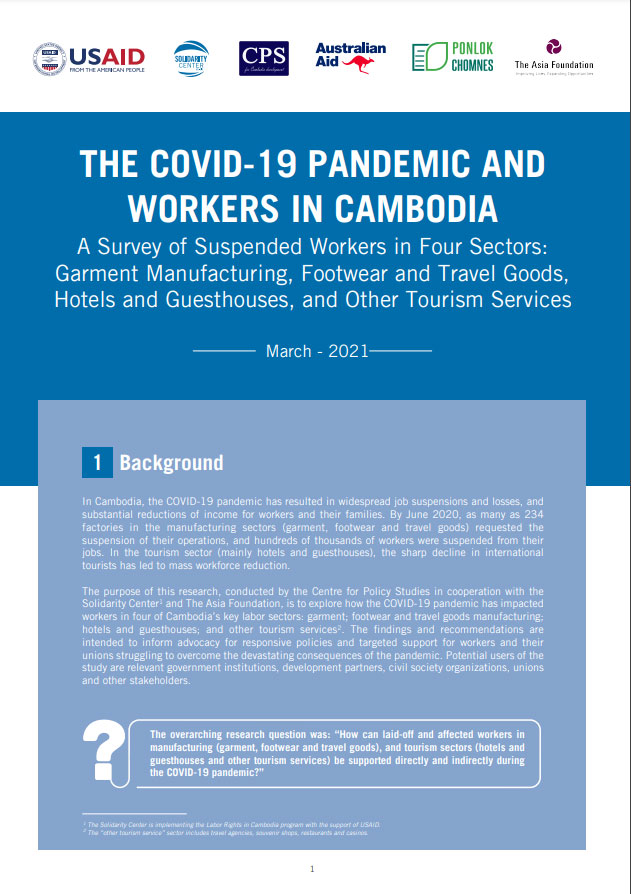
THE COVID-19 PANDEMIC AND WORKERS IN CAMBODIA
As a new wave of COVID-19 hits Cambodia, a new study recommends urgent action to ensure garment and tourism workers workers do not experience widespread loss of jobs and wages as they did in 2020. The Center for Policy Studies survey is supported by Solidarity Center...
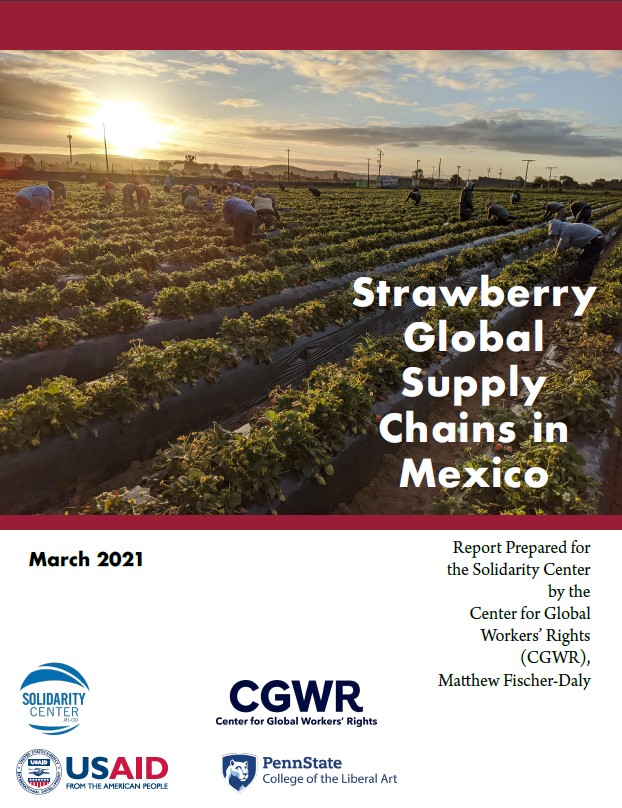
Strawberry Global Supply Chains in Mexico
The governments of Mexico and the United States have supported the growth of the Mexican berry sector by creating conditions for a cheap supply of labor and profit growth. Mexican field workers receive an estimated 12 cents per pound of strawberries sold in U.S....

